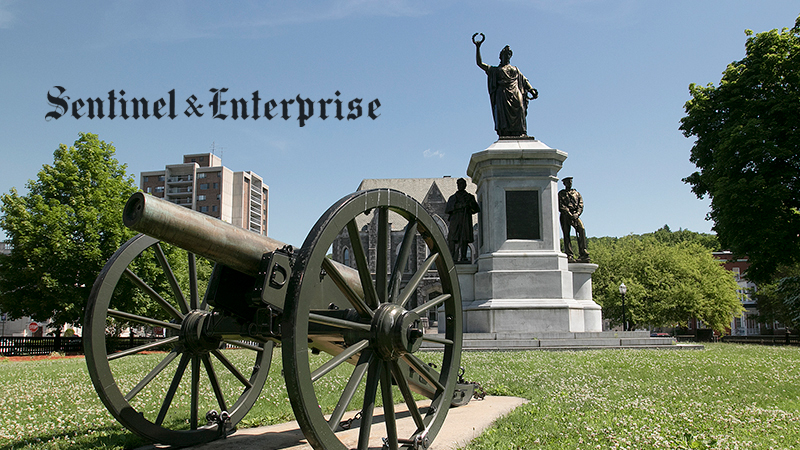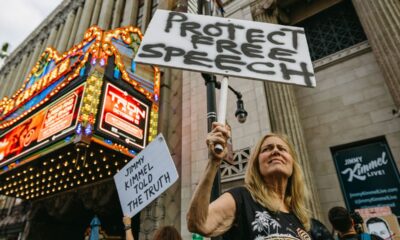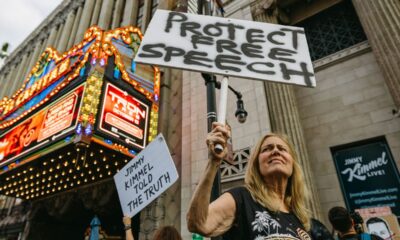Technology
Free Speech and Press Freedom: A Call for Public Vigilance

The recent surge in discussions about free speech has highlighted a troubling disparity in public engagement regarding press freedom. While many express outrage over perceived attacks on comedians, such as the suspension of Jimmy Kimmel, similar concerns about journalistic integrity seem to attract less attention. This discrepancy raises questions about how society values different forms of expression and the implications for democracy.
Public Outcry Over Comedians But Silence on Press Issues
In the wake of increased scrutiny on comedians, particularly following Kimmel’s recent challenges, many have taken to social media to voice their concerns about free speech. This newfound activism is especially notable among individuals who typically remain silent on issues affecting the press. As Wafa Unus, an associate professor of journalism at Fitchburg State University, points out, the contrasting reactions to entertainment figures and journalists reveal a deeper societal issue. While pressure on a comedian elicits immediate solidarity, the pressure faced by the press often seems like an abstract concern.
The erosion of local news and the decline of public trust in journalism have contributed to this disconnect. Many people now see journalism as a distant industry rather than a fundamental aspect of civic life. As a result, when corporate entities respond to government pressure by altering news coverage, the public tends to overlook the implications.
The Impact of Ownership on Editorial Independence
Recent events underscore the precarious relationship between corporate ownership and editorial independence. For instance, the Washington Post faced criticism when new ownership under Jeff Bezos led to the cancellation of the paper’s endorsement of Kamala Harris during a crucial moment in the 2024 presidential election. This decision was perceived by staff as a capitulation to political pressure, prompting some to resign in protest. Despite the gravity of the situation, much of the outrage was directed at the newsroom rather than the ownership or the political forces behind the decision.
“This sets a dangerous precedent for democracy,” staffers warned, highlighting the implications of ownership decisions on journalistic integrity.
In contrast, when Kimmel’s show faced corporate backlash, the public swiftly called for accountability from Disney, the parent company. This difference in response highlights how the public perceives the stakes involved. The ownership of media outlets and the influence of politics intersect in both cases, yet the public reaction varies significantly.
The irony lies in the fact that many who advocate for free speech in the context of entertainment do not extend the same support to the press. This selective engagement diminishes the importance of press freedom, which is equally enshrined in the First Amendment alongside free speech. The lack of public outcry for journalists raises critical questions about civic responsibility and the value placed on independent reporting.
As society grapples with these issues, it is essential to recognize that free speech and a free press are intertwined. The decline of local news has further eroded the connection between communities and their reporters, making it easier for the public to view journalism as a flawed industry rather than an essential public service. This shift in perception has led to a reluctance to defend press freedom, as many now see it as an optional concern.
It is vital for the public to acknowledge that the challenges faced by journalists are not mere workplace issues but critical threats to constitutional rights. As Unus asserts, the disconnect between public reactions to entertainment and press freedom issues should be alarming. If society is willing to stand up for comedians, it must also support journalists who have been sounding alarms about their own struggles for the past decade.
Ultimately, if the public wishes to protect the First Amendment, it must advocate for both free speech and press freedom. Acknowledging the erosion of these rights, wherever it occurs, is crucial to sustaining a vibrant democracy. Without vigilant support for independent journalism, the risks of losing this vital constitutional freedom grow ever more substantial.
-

 Technology5 months ago
Technology5 months agoDiscover the Top 10 Calorie Counting Apps of 2025
-

 Health2 months ago
Health2 months agoBella Hadid Shares Health Update After Treatment for Lyme Disease
-

 Health3 months ago
Health3 months agoErin Bates Shares Recovery Update Following Sepsis Complications
-

 Technology4 months ago
Technology4 months agoDiscover How to Reverse Image Search Using ChatGPT Effortlessly
-

 Technology1 month ago
Technology1 month agoDiscover 2025’s Top GPUs for Exceptional 4K Gaming Performance
-

 Technology2 months ago
Technology2 months agoElectric Moto Influencer Surronster Arrested in Tijuana
-

 Technology5 months ago
Technology5 months agoMeta Initiates $60B AI Data Center Expansion, Starting in Ohio
-

 Technology5 months ago
Technology5 months agoRecovering a Suspended TikTok Account: A Step-by-Step Guide
-

 Health4 months ago
Health4 months agoTested: Rab Firewall Mountain Jacket Survives Harsh Conditions
-

 Lifestyle5 months ago
Lifestyle5 months agoBelton Family Reunites After Daughter Survives Hill Country Floods
-

 Technology4 months ago
Technology4 months agoHarmonic Launches AI Chatbot App to Transform Mathematical Reasoning
-

 Technology3 months ago
Technology3 months agoUncovering the Top Five Most Challenging Motorcycles to Ride





















